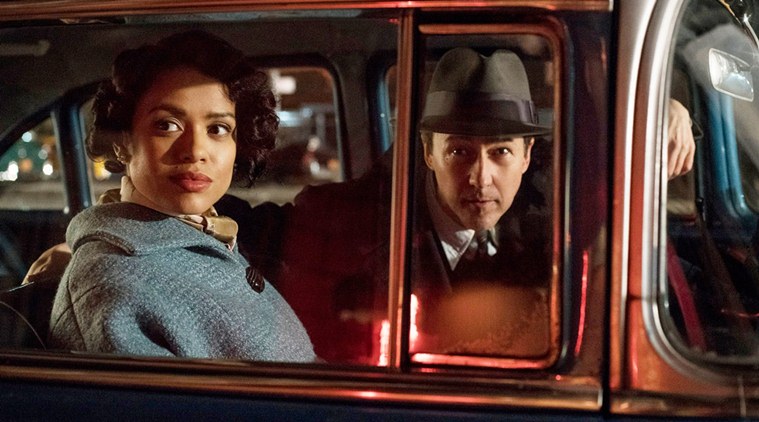Motherless Brooklyn movie review: Edward Norton has an impressive cast that turns up even for bit roles, including Willis, while Norton himself is in superlative, if indulgent, form as the man who has been seeking answers all his life — encumbered by his own mind, which he once dubs an "anarchist".
Motherless Brooklyn movie cast: Edward Norton, Gugu Mbatha-Raw, Alec Baldwin, Cherry Jones, Willem Dafoe, Bobby Cannavale
Motherless Brooklyn movie director: Edward Norton
Motherless Brooklyn movie rating: Three stars
The talented Ed Norton spent a decade developing the award-winning Jonathan Lethem novel by the same name. Fortuitously though, there couldn’t have been a better time for Norton’s film. The film’s high-ranking New York public official, Moses Randolph, is clearly based on the man credited with building that city in real life, Robert Moses. However, Rudolph could well be based on two other men who have come to represent that city now — whose role, on top of it, is central to the ongoing impeachment proceedings in the US — Donald Trump and former New York mayor Rudy a.k.a. Rudolph Giuliani.
Unlike the 1990s setting of the novel, the film is based in the 1950s, when the effects of the recession and WWII are yet to wear off, creating fertile territory for men like Rudolph, who pit themselves as leaders of action rather than of words. As Alec Baldwin, whose flourish lends an extra sheen of angry righteousness to Rudolph, puts it, it’s him or “the goody-goody progressives with their paralysing ideals”. He isn’t “above” the law, but “ahead” of it, Rudolph explains, for once he has given the city “what it needs”, laws mould themselves to it.
In his zeal to build bridges, highways and housing, the ones being forced to make way are the poor and Blacks. That makes Rudolph a villain in many eyes, and leading from the front are another city official, Horowitz (Jones), and her aide, lawyer Laura (Mbatha-Raw). Norton plays private detective Lionel, who suffers from Tourette’s Syndrome (the film doesn’t have a name for it, unlike the novel, and leaves Lionel explaining his tics and itches throughout). Lionel gets interested in Rudolph after his mentor, Frank (Willis), is shot investigating something that leads up to the powerbroker.
Director/screenwriter/actor Norton gets the mood of the 1950s right, as he does the despair of New York’s condemned colonies. Laura’s adoptive father runs a jazz club, lending the film some soulful music. The four men, including Lionel, running Frank’s detective agency now seem truly bound by their secrets and ghosts, carried over from a past that includes war and shared life at a strict Catholic orphanage.
Norton has an impressive cast that turns up even for bit roles, including Willis, while Norton himself is in superlative, if indulgent, form as the man who has been seeking answers all his life — encumbered by his own mind, which he once dubs an “anarchist”.
The film itself though is laboured, its mysteries not as dense as it would like to believe. Corruption, power, unelected officials, big money, small people, and murder don’t shock any more. Plus, rather than exploring absolute power — but for two passionate speeches by Rudolph — the film veers into a much lamer scandal in comparison. This is a significant departure from the book, among others.
However, as Horowitz puts it, what’s the point if one “doesn’t call out things as they are”. Especially when, in words of another character, played by Dafoe, it’s easy to overlook such things, in the comfortable notion that “we are in a democracy… How bad could things be?”
Source: Read Full Article


